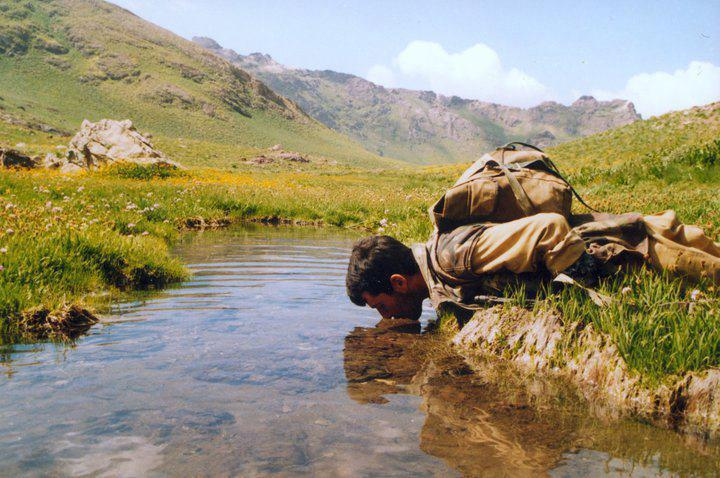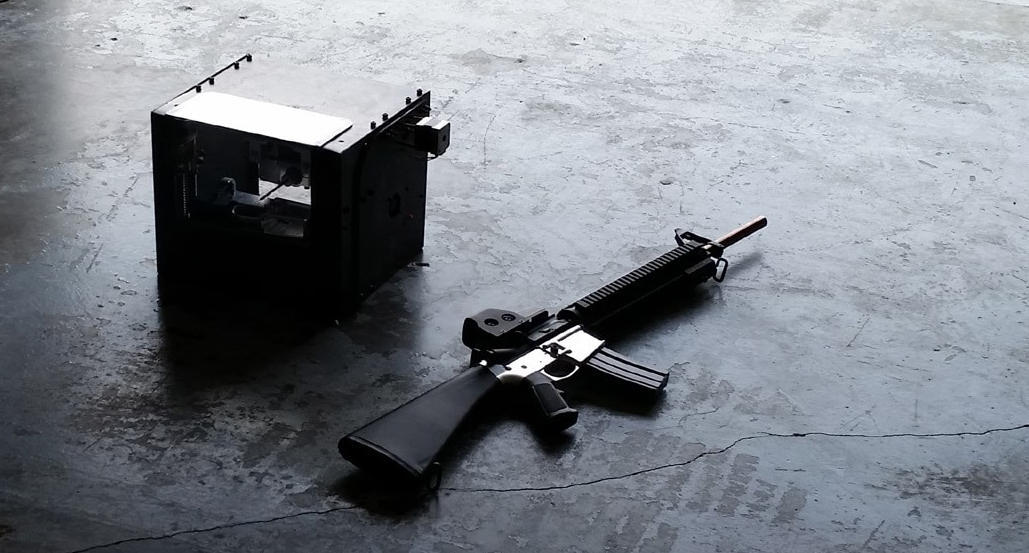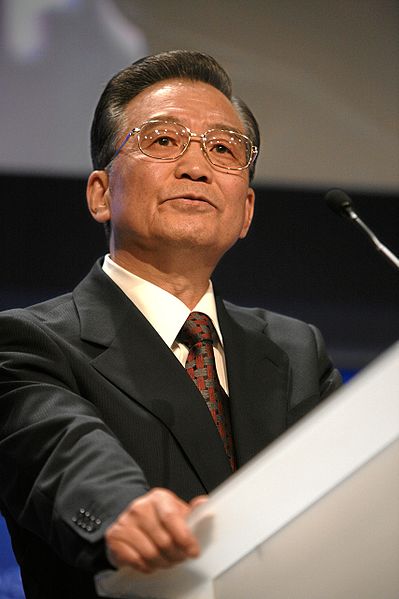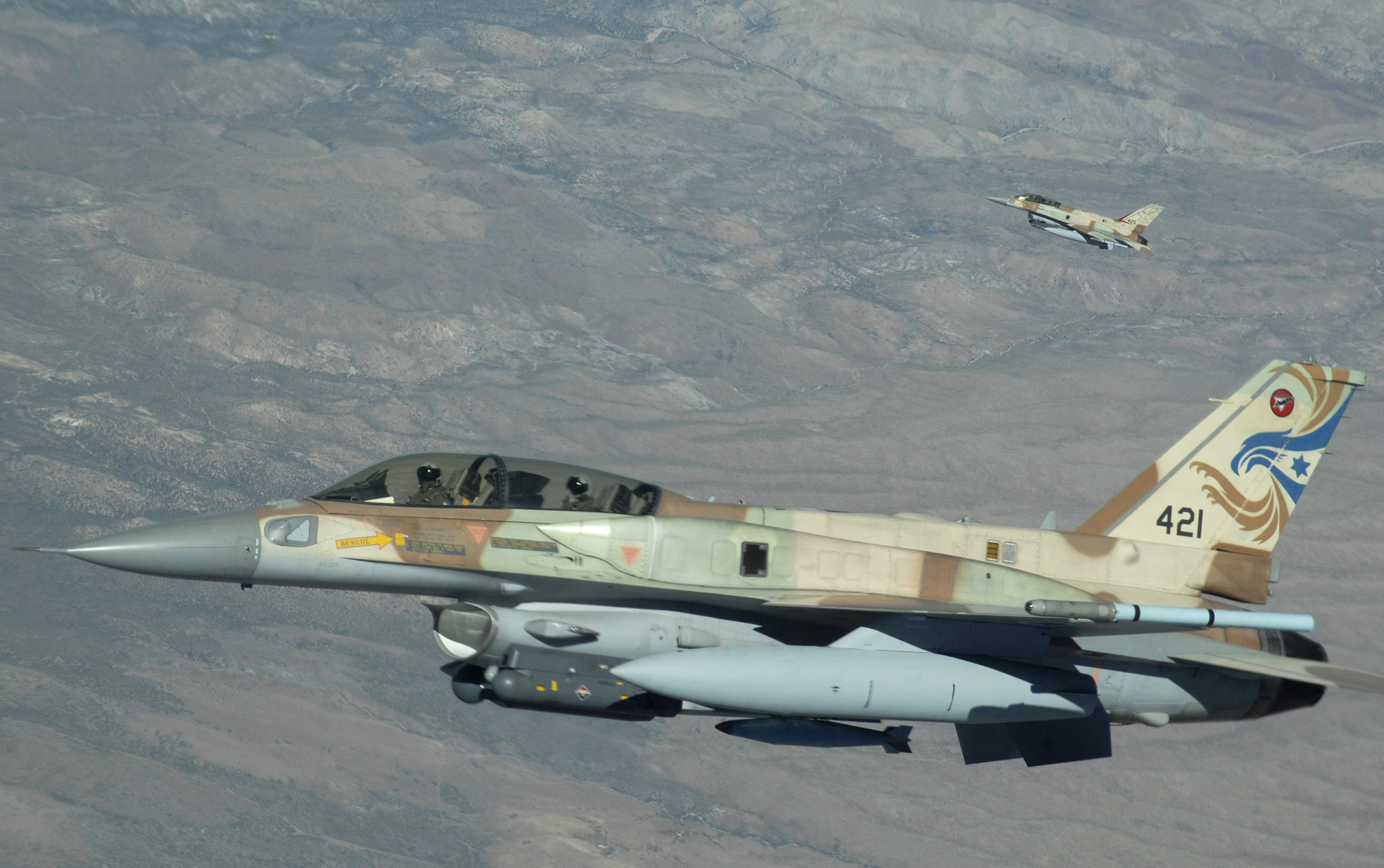Guest post by Ariel Ahram

Iraq stands alone in the Arab world in having large quantities of two highly valuable resources—water and oil. Water, of course, has allowed the flourishing of civilization along the banks of the Tigris and Euphrates rivers. Ample endowments of water gave the Iraq the potential to be a breadbasket, as it had been in the heyday of Sumer and Babylon. Symbolically, too, for many Iraqis the linkage to the venerable Mesopotamian heritage was a focal point of national identity that transcended narrow ethno-sectarian allegiances. Oil, though hardly of such ancient provenance, is no less than the lifeblood of the modern economy. With seemingly limitless oil wealth, Iraq might have become an industrial powerhouse as well. As with water, oil serves as a symbol of national patrimony and pride, the property of the Iraq nation as a whole.
But rather than being doubly-blessed, this abundance has proven Iraq’s bane. With a government in Baghdad bent on solidifying Shi’i supremacy, the Kurds inching ever closer to outright secession, and Sunni rebels flocking toward a genocidal Islamic States (IS), water and oil combine to make the Iraqi state profoundly vulnerable. But just as oil and water have served as causes and catalysts of Iraq’s fragmentation and violence, they can also provide incentive for conciliation. With Nouri al-Maliki apparently ousted from power by parliamentary maneuver, the U.S. has a unique opportunity to help solidify arrangements for sharing oil and water that will aid Iraq in avoiding disaster.
Lineages of the Hydro-Petroleum State
Since the Bronze Age the civilizations in the Fertile Crescent have risen and fallen by their ability to harness water, build irrigation infrastructure, and support the expansion of agriculture to the fringes of an otherwise arid environment. It is hardly coincidence that Cairo and Baghdad, the Arab world’s true mega-cities, both lay on the banks of the regions’ two greatest river systems, beneficiaries of both massive and intricate networks of canals, sluices, and dams. In the era of the hydro-carbon economy, ample oil can compensate for the traditional reliance on water. Saudi Arabia’s 20th century ascent, with its relative newcomer metropolises like Jeddah and Riyadh, is directly related to the regime’s use of oil rents to build new hydrological infrastructure, tapping underground reservoirs and even going to the enormously costly step of desalinating seawater in a bid to overcome the otherwise inhospitable desert ecology.
While control over oil and water is a source of great potency, this power is often socially corrosive. By granting states a seemingly endless supply of revenue, oil relieves states of the difficult tasks of negotiating a social contract with their own population. Lavish subsidies of key consumer commodities, including electricity, gasoline, and food, are meant essentially to “buy” popular support. As political economist Michael Ross and many others have shown, oil-based economies are typified by endemic corruption, but also authoritarianism and violence. Saddam Hussein used oil wealth to fund the build-up of a massive security state. Nouri al-Maliki, perhaps because he feared he could not control the armed forces, took another route. Under his government oil revenues have been systematically siphoned from public to private coffers through endless kickbacks, embezzlement, and other schemes. Yet oil power has its own distinctive vulnerabilities, placing oil-exporting economies at the mercy of boom/bust cycles of the global energy market. Maliki was been fortunate to rule over a period of rising global oil prices, a concomitant increase in demand, and Iraq’s own oil production.
Water can have very similar qualities as oil. In the 1957 Karl Wittfogel, a German émigré sociologist, hypothesized that societies such as in ancient Mesopotamia, Egypt, and China, displayed a singular tendency to despotism because of their common reliance on large scale irrigation. Only a powerful and oppressive central government, often using slave or coerced peasant labor, could maintain the elaborate systems of dams, sluices, and canals that kept these “hydraulic” civilizations alive. The British used their hold over irrigation to solidify their colonial mandate in Iraq. Modern Middle East states are the successor to this tradition. Iraq, along with Egypt, Turkey, and Syria, have premised their development planning on harnessing hydro-power, building massive dams that controlled flooding and generated electricity.
At the same time, water is also an implement of war. In the 1970s the Iraqi government expanded hydrological infrastructure and basins in Kurdistan in a bid simultaneously to expand rural electrification and to flood out isolated villages where Kurdish guerrillas were hiding. Following the first Gulf War and the failed March 1991 uprising, Saddam built a series of dams and canals to effectively obliterate the marshlands in southern Iraq where rebels had retreated. Internationally, there have been numerous instances of belligerent and even violent confrontations between Iraq and its riparian neighbors over the use of the river water. The Iran-Iraq war, for instance, was fought in part to assert Iraq’s navigational rights on the Shatt al-Arab river, the crucial passage connecting the Tigris and Euphrates to the Persian Gulf.
Hydraulic power can be brittle, too. The larger and more intricate their hydraulic infrastructure, the more susceptible states become to potentially calamitous disruptions. One season too wet or too dry, one unmaintained canal, or one failed dam can wreck the entire system. The American occupation authority learned this lesson in its interminable efforts to try to restore Iraq’s electricity production, a key benchmark for the success of the U.S. occupation. With nearly twenty percent of Iraq’s electricity generated from hydro-electricity, the U.S. found the Mosul, Dokan, and Derbandikhan dams in dangerous stages of deterioration, requiring tens of millions of dollars in repairs. The breakdown of hydraulic support systems, though, can be socially catastrophic. A regional drought affecting farmers in eastern Syria is believed to have contributed to the popular disaffection that sparked the beginning of anti-regime protests.
The Combustion of Oil and Water
The dramatic advances made by the Islamic State put Iraq’s most precious resources at risk. Technically a federally autonomous region of Iraq, the Kurdistan Regional Government (KRG) based in Erbil has long made its own use of oil and water to consolidate its own quasi-state. The once-rival Patriotic Union of Kurdistan and Kurdish Democratic Party form a kind of political duopoly in the region, divvying up political and economic spoils between them. Even before this summer’s crisis, the KRG had constructed a separate pipeline connecting the small number of fields in their autonomous zone to Turkey, circumventing the main Iraqi pipeline in the northwest, which had been systematically targeted and regularly disabled by insurgents. Moreover, the KRG has sought to incorporate Kirkuk and the northern oil fields as part the historical Kurdish territory. For over a year Erbil and Baghdad have been in a worsening dispute over equitable distribution of Iraqi oil revenue. Cooperation over water has also been tense. With the Kurds controlling dams on the Greater and Lesser Zab and Diyala rivers which run from Zagros mountains into the Tigris, the KRG negotiated with Baghdad, essentially trading water flow in the east for access to the hydroelectricity generated at the Mosul Dam further west. Yet Kurdish peshmerga repeatedly encroached on Nineveh toward the Mosul Dam. Arab farmers around Kirkuk complained that the Kurds were deliberately chocking off the water flow to force them from their land.
IS has also tried to leverage the power of oil and water to its advantage. Upon seizing control of the Tabqa Dam in eastern Syria in February 2013, IS kept the facility operating and actually sold the electricity back to the government in effort to raise revenue. In Fallujah, IS turned used water as a weapon, opening up dikes and flooding causeways in order to block the Iraqi army’s encirclement maneuver. While government forces retreated in disarray from Mosul and other northern cities this June, they put up much more stubborn defenses of the Haditha Dam, which channels the Euphrates close to Baghdad, and the refinery at Beiji, Iraq’s largest. Still, though IS was denied control over these two key installation, IS has managed to cut off Iraq’s main oil pipeline to Turkey, effectively disabled Beiji, and gained control of even more oil fields.
Seizing the opportunity of the June offensive, Kurdish peshmerga moves south and west, seizing both the Kirkuk oil fields and the Mosul Dam north of the city. For a few weeks it looked as if the KRG had reached at least a tacit truce with the IS. Certainly, Maliki’s supporters in Baghdad accused the Kurds of perfidy in colluding with IS to divide up northern yet. The fact that KRG forces quickly set out to build defensive barriers, ditches, and moats around the newly-captured territory suggested that they intended to shift the boundary permanently in preparation for a bid for outright independence. Yet the Kurdish forces also proved dangerously overextended. In the last few weeks, IS has moved eastward into the newly-held Kurdish position, taking control of the Mosul Dam. Now IS exerts control over both the flows of both the Euphrates and the Tigris rivers, as well a growing number of oil installations.
From the perspective of the central government, these developments represent a bruising but not a mortal blow, at least in the short term. As consequential as they are for IS and the KRG, the northern fields account for only about a tenth of Iraq’s proven reserves. Even without the northern fields, Iraq is still one of the largest OPEC producers. The bulk of Iraq’s oil fields are in the south around Basra, the Shi’i heartland far from the front lines of the fighting. Backed by an influx of Iranian military support and now with U.S. airstrikes steadily degrading IS forces, the central government may be able to shore up its defenses and even prepare for a counterattack.
Yet every gallon of water and every petro-dollar denied to Baghdad is one going into the hands of its antagonists. Both the Kurds and the IS have kept their fields active. The KRG has actually increased production in its field, eagerly courting firms and government in the hopes of shoring-up support for its eventual bid for independence. A U.S. federal court in Texas has accepted Baghdad’s petitions and blocked the sale of about $100 million of crude which the Kurds claim as their own. Still, other buyers may be willing to look the other way to get access to oil on a discount. With IS advancing perilously toward Erbil, though, many foreign oil companies have evacuated the region entirely.
IS continues to try to use control over oil and water to bolster its revenues and win support from the population under its control. IS is reportedly selling truckloads of crude to smugglers, possibly generating as much as $1.4 million per day in revenue. It has also worked to offer refined products, such as gasoline, at reduced cost in effort to replace and even better the consumer subsidies which the population had come to expect from the state. Instead of opening up the Mosul Dam to induce potentially catastrophic flooding, as some had feared, IS appears to be repeating its tactics from Tabqa, bringing in engineers and technicians to repair battle damage and re-establish electricity for areas under its control. IS is, in essence, playing the long game.
Meanwhile, Iraq is already experiencing electricity shortfalls and shortages of refined products like gasoline and propane, which are used to run small, supplemental private generators for when the national grid fails. Just as the American occupation staked—and perhaps lost—its legitimacy on the promise of electricity for the masses, Maliki’s ability to provide cheap electricity and subsidized gasoline is critical. Iraq’s oil ministry announced that tapping into set aside reserves and importing more refined products can compensate for the loss of the Beiji refinery. How long this solution can hold is unclear.
The linkage between oil and water, though, makes the long term situation for Iraq even bleaker. The water levels at Basra are already dangerously low. Due to unique geological conditions in southern Mesopotamia, Iraq’s southern fields require the reinjection of water to maintain underground pressure. For every one barrel of oil pumped, one and half barrels of water must be put back into the field. Looking for an alternative source of reinjection stock, Baghdad has been trying for several years to fund a Common Seawater Supply Facility (CSSF) that would treat and pump seawater to the southern fields to use for injection. The multi-million dollar project, though, was delayed for years by political wrangling and is still not online. With freshwater scare, the entire edifice of Iraq’s oil production is now in jeopardy.
Beating the Resource Curse?
Iraq’s oil and water resources went from being potential sources of political unity and prosperity into causes of the country’s fragmentation of violence. But, contrary to Wittfogel’s understanding of hydraulic despotism or the more recently-minted notion of an “oil curse”, geology and hydrology are not destiny. Deliberate political choice generated the current crisis and political decisions can help ameliorate it.
When the U.S. invaded Iraq in 2003, Shi’i and Kurdish leaders appeared committed to a federalist vision of Iraq in which Kurdish autonomy was considered a key element for maintaining the integrity of the state overall. Following the transfer of sovereignty back to Iraqi hands, this vision seemed to be endorsed in the 2005 constitution. By agreement the central government is obliged to transfer 17% of the national budget to the KRG, commensurate with population. But the accord has been steadily breaking down in recent year, with the Kurds feeling they can do without Baghdad and moving closer to an outright declaration of independence and a majoritarian Shi’i central government showing less flexibility when it comes to dealing with either Sunni Arab or Kurdish demands. IS has adeptly exploiting these fissures, systematically playing off the KRG and Baghdad to isolate each and take them on one by one. With IS expanding its command over oil and enjoying upstream control over both the Tigris and Euphrates, neither a quasi-independent Kurdistan nor the rump Shi’i-state of Iraq can expect to survive for long.
Finding ways to equitably divide oil and water resources between the central government and the Kurds is key to establish an effective alliance to counter the IS onslaught. The U.S. can play a unique role in brokering this reconciliation. On one hand, it can pressure central government to offer the KRG a greater share of the national revenue pie by finding new ways to account for revenue transfer. Discussions of water sharing can also be brought into a quid pro quo. On the other hand, the U.S. can make clear to the KRG that it will embargo oil sold under the flag of the KRG instead of Iraq’s. This will dampen any hopes the Kurds may have of being able to go it alone without Baghdad’s. A unity based on the sharing of these two resources is hardly ideal. Sunni Arabs, the main force behind IS’s expansion, will still be excluded, just as they had been in 2003. Moreover, simply sharing natural resources will not provide the basis for a common national Iraqi identity. It might, however, offer the kind of inducements necessary to dig Iraq from its current crisis.
Ariel Ahram is an assistant professor of government and international affairs at Virginia Tech. His research interests include Middle East politics, state formation and state failure, global security, politics of the developing world, and multi-method research techniques.







2 comments